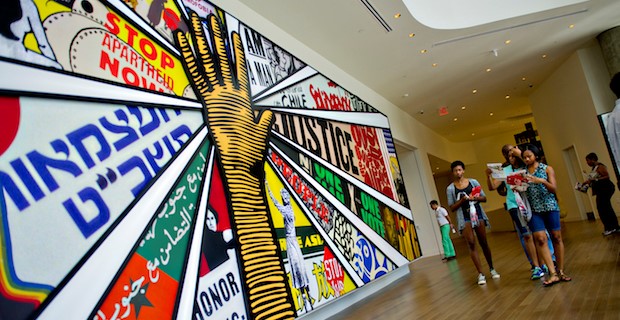
On Passover, we confront a central, inextricable tension: we must simultaneously hold the joy of our exodus from slavery in Egypt with the persecution we see all around us in the world. For many centuries, that persecution was directly experienced by Jews themselves. The Passover story represented the liberation that existed always just out of reach, but that our ancestors would never cease from striving to obtain.
Today, we find ourselves in a radically different place. It is not coincidental that the Jewish community has flourished in the United States nearly unmatched elsewhere in the world, or in modern history. This has been a land of opportunity and success for American Jews, and while anti-Semitism remains a very real threat, American Jews can largely live without fear of violence or persecution.
Much of this is due to the fact that many (although certainly not all) of us to pass as white, and this has brought with it economic, social and political privileges. By the same token, the privileges many of us experience as white people have been systematically and purposefully denied to people of color.
Recognizing the complicated position in which our community resides, we have a responsibility to reflect on what exodus means in the context of the continued structural racial inequality. From restricting access to the ballot box to mass incarceration, we must confront the truth that we live in a society where racial injustice pervades. And we must ask ourselves a challenging series of questions: What does it mean for white Jews to have had such success in this country, when others in our communities and congregations have not been afforded the same opportunities? Can we as a Jewish people be liberated when our neighbors remain oppressed? How can we bring our identity as Reform Jews into the struggle for racial justice?
We will not reach full or satisfactory answers to these questions immediately - it will take time to grapple with all of the complexities in the American Jewish community, and there may be considerable disagreement along the way. What is most important, however, is that we have conversations. As we celebrate Passover, fully immersed in a Movement-wide campaign for racial justice, we find ourselves at an opportune moment to begin those conversations.
There are a number of ways to bring racial justice into your congregation or family seder. You can launch a conversation about the importance of struggling for racial justice through a modified reading of the story of the Four Children. You can also hear the voices of those within and outside of our Movement who have already dedicated themselves to advancing racial equality. And you can host a multiracial, interfaith and/or multicultural seder with a special racial justice-themed haggadah.
Related Posts

Remarks from Rabbi Eliana Fischel at Jewish Gathering for Abortion Access

Teens from North Carolina Speak About Environmental Justice


